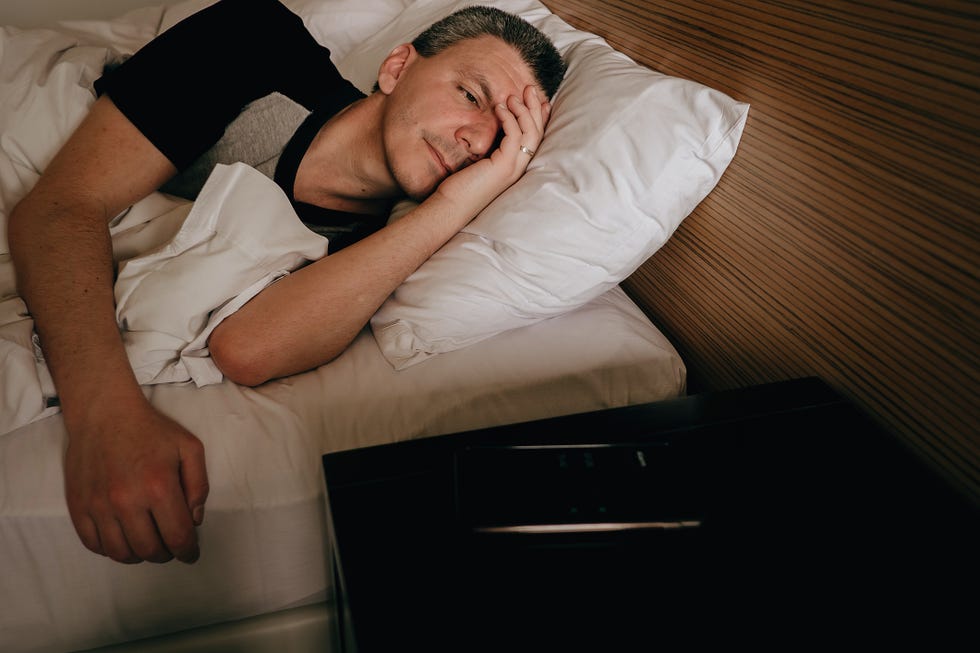Cognitive Behavioral Therapy for Insomnia (CBT-I) - Proven Methods
Cognitive Behavioral Therapy for Insomnia (CBT-I) - Proven Methods
Blog Article
Efficient Treatment Solutions for Handling Sleep Disorders and Enhancing Relaxed Rest
In the realm of healthcare, the monitoring of sleep disorders and the pursuit for relaxing sleep are crucial elements of overall health. Efficient therapy services use a multifaceted strategy to tackle these obstacles, varying from cognitive behavior treatments to all natural methods that advertise leisure and mindfulness. The exploration of different approaches, consisting of the combination of medicine and light therapy, opens a world of opportunities in the pursuit of better sleep quality. As we navigate the elaborate landscape of rest problems and look for to enhance our sleep experience, a deeper understanding of these therapy remedies might hold the key to opening a more relaxing and fulfilling restorative trip.
Cognitive Behavior Modification for Sleeplessness (CBT-I)
Cognitive Behavior Modification for Sleeplessness (CBT-I) is a structured, evidence-based therapy method that concentrates on addressing the hidden variables contributing to rest disruptions. This type of therapy aims to modify habits and ideas that intensify sleep problems, inevitably promoting healthy rest patterns. CBT-I commonly entails several crucial parts, consisting of cognitive treatment, sleep limitation, stimulation control, and rest hygiene education.
Cognitive therapy assists people recognize and change unfavorable thought patterns and beliefs about sleep that may be preventing their capability to drop or remain asleep. Sleep limitation includes limiting the amount of time invested in bed to match the person's real sleep period, consequently increasing rest effectiveness (sleep improvement therapy). Stimulus control methods help establish a strong organization between the bed and rest by urging individuals to visit bed only when sleepy and to avoid participating in stimulating tasks in bed
In addition, sleep hygiene education and learning focuses on establishing healthy and balanced rest practices, such as preserving a regular rest routine, developing a relaxing bedtime regimen, and maximizing the sleep environment. By addressing these factors comprehensively, CBT-I supplies a reliable non-pharmacological treatment for managing sleeping disorders and enhancing overall rest top quality.
Sleep Health Practices
Having established the foundation of cognitive restructuring and behavioral adjustments in addressing sleeping disorders with Cognitive Behavior modification for Sleep Problems (CBT-I), the focus currently shifts towards exploring crucial Sleep Hygiene Practices for maintaining optimum rest quality and total well-being.
Rest health methods incorporate an array of routines and ecological variables that can dramatically influence one's capacity to fall asleep and remain asleep throughout the night. Regular rest and wake times, producing a relaxing bedtime regimen, and maximizing the rest setting by keeping it dark, silent, and cool are essential elements of good sleep health. Restricting exposure to screens before going to bed, avoiding energizers like high levels of caffeine near to bedtime, and participating in normal exercise throughout the day can also promote better rest high quality.
In addition, practicing leisure techniques such as deep breathing workouts or meditation prior to bed can help relax the mind and prepare the body for rest. By including these sleep health techniques right into one's day-to-day regimen, people can develop a healthy and balanced sleep pattern that sustains relaxed sleep and total wellness.
Leisure Techniques and Mindfulness
Executing relaxation methods and mindfulness practices can play a critical duty in promoting a feeling of tranquility and advertising high quality rest. Furthermore, led imagery can help deliver people to a calm location in their minds, helping in stress decrease and boosting sleep top quality.
By incorporating these methods right into a pop over to this site bedtime regimen, individuals can signify to their bodies that it is time to prepare and unwind for rest. hyperthyroidism sleep Overall, incorporating relaxation methods and mindfulness techniques can substantially add to managing rest disorders and improving overall rest quality.

Medicine Options for Sleep Disorders
After checking out relaxation strategies and mindfulness methods as non-pharmacological treatments for enhancing sleep top quality, it is important to take into consideration medicine alternatives for people with rest conditions. In instances where lifestyle modifications and therapy do not give sufficient relief, medicine can be an important tool in handling sleep disruptions.
Typically recommended medications for rest conditions consist of benzodiazepines, non-benzodiazepine hypnotics, antidepressants, and melatonin receptor agonists. Benzodiazepines, such as diazepam, are sedatives that can help induce rest, yet they are generally advised for short-term usage because of the risk of reliance. Non-benzodiazepine hypnotics like zolpidem are likewise utilized to deal with sleeplessness and have a reduced threat of reliance compared to benzodiazepines. Antidepressants, such as trazodone, can be helpful for individuals with co-occurring anxiety and sleep disturbances. Melatonin receptor agonists, like ramelteon, target the body's all-natural sleep-wake cycle and can be useful for controling sleep patterns.
It is important for individuals to talk to a doctor to figure out one of the most proper medication option based upon their specific sleep condition and case history.
Light Treatment for Circadian Rhythm Regulation
Light treatment, likewise referred to as photo-therapy, is a non-invasive therapy technique used to control body clocks and improve sleep-wake cycles. This treatment involves direct exposure to intense light that simulates all-natural sunlight, which assists to reset the body's inner clock. By subjecting people to certain wavelengths of light, commonly in the early morning or evening relying on the desired impact, light treatment can properly change the body clock to advertise wakefulness throughout the day and boost relaxing rest in the evening.
Research has revealed that light read this treatment can be particularly useful for individuals with circadian rhythm conditions, such as postponed rest stage syndrome or jet lag. It can likewise be handy for those experiencing seasonal affective problem (SAD), a sort of anxiety that typically happens throughout the cold weather when natural light exposure is decreased. Light therapy is normally well-tolerated and can be made use of along with various other treatment techniques for rest problems to optimize results and boost total rest top quality.
Conclusion
To conclude, efficient treatment solutions for managing sleep disorders and improving relaxed rest consist of Cognitive Behavior modification for Sleeping Disorders (CBT-I), rest health methods, relaxation techniques and mindfulness, medicine choices, and light therapy for circadian rhythm regulation. These approaches can help people boost their rest quality and overall health. It is essential to seek advice from a doctor to establish one of the most suitable technique for addressing sleep concerns.
As we navigate the elaborate landscape of sleep problems and seek to enhance our sleep experience, a much deeper understanding of these therapy remedies might hold the secret to opening a much more rejuvenating and satisfying corrective journey.
Rest restriction includes restricting the quantity of time spent in bed to match the individual's real rest duration, thereby boosting sleep efficiency. Regular sleep and wake times, producing a relaxing bedtime regimen, and enhancing the sleep environment by maintaining it dark, quiet, and cool are important components of great rest hygiene. Light treatment is normally well-tolerated and can be used in combination with various other treatment techniques for rest problems to enhance end results and enhance total rest high quality.

Report this page